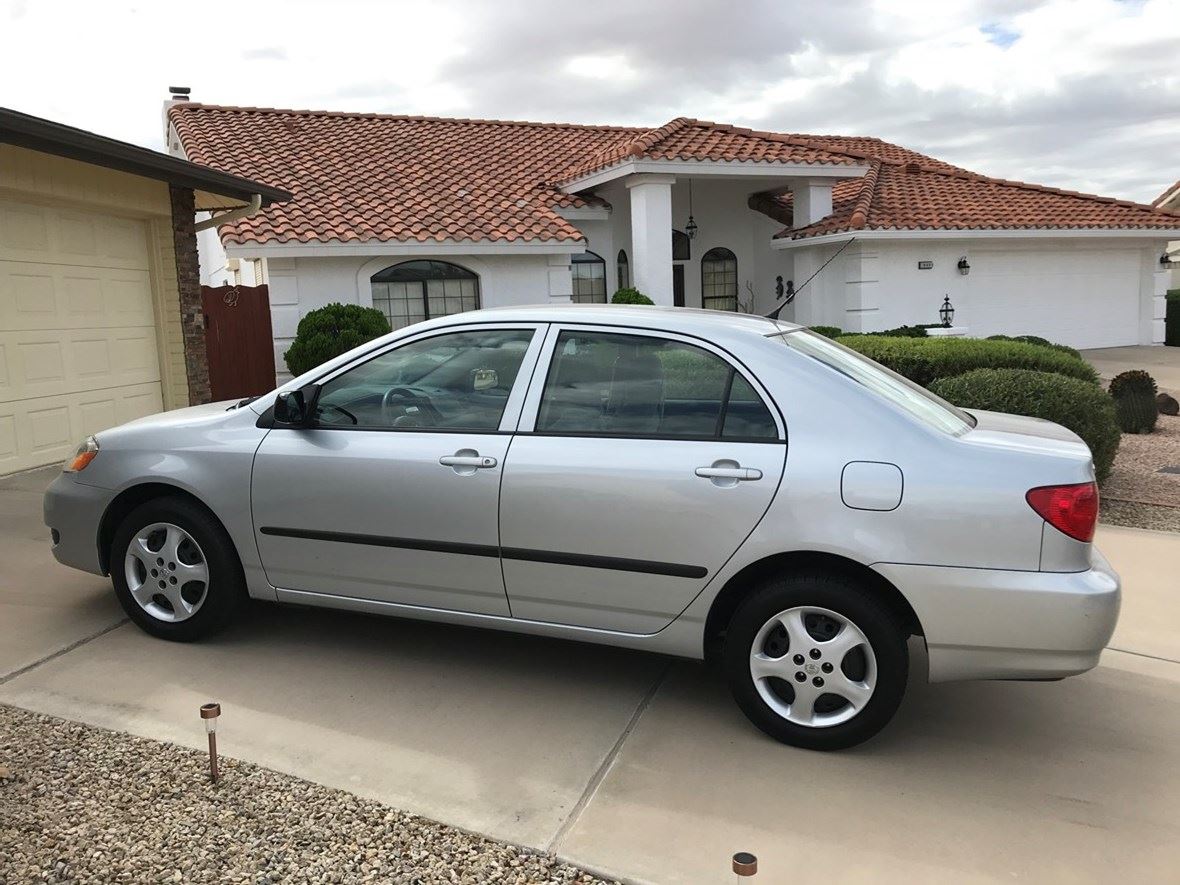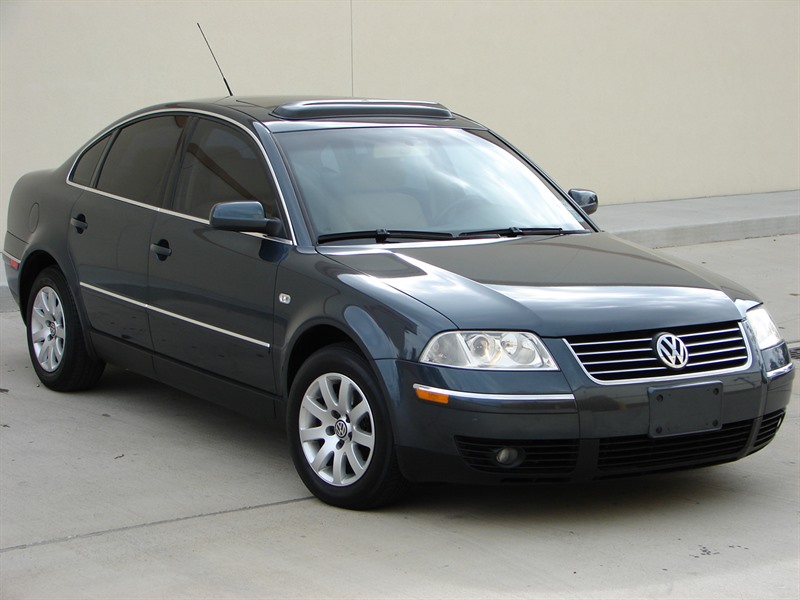
Understanding the Market
The used car market, particularly the segment sold by private owners, presents a unique set of characteristics compared to dealerships. This segment often offers a more personalized experience, but also involves more due diligence on the part of the buyer. Understanding these nuances is crucial for navigating this market effectively.
Private Seller Market Characteristics
The used car market dominated by private sellers is often characterized by a wide range of pricing, vehicle conditions, and negotiation tactics. Owners frequently list vehicles with varying degrees of maintenance history, making independent verification critical. Pricing is typically more flexible than at dealerships, allowing for negotiation.
Pricing Differences Between Private Sellers and Dealerships
A significant difference lies in the pricing strategies. Dealerships typically have established pricing models, often factoring in overhead, profit margins, and the cost of preparing the car for sale. Private sellers, on the other hand, often list their cars at prices influenced by market value, personal circumstances, and the perceived desirability of the vehicle. This often leads to a more dynamic and potentially unpredictable pricing environment.
Typical Condition of Privately Owned Used Cars
The condition of used cars sold by private owners can vary significantly. Some vehicles may have been meticulously maintained, while others may exhibit signs of wear and tear. This variation necessitates a thorough inspection process for the buyer to assess the true condition of the vehicle. This often includes an independent mechanic’s assessment.
Negotiation Practices in Private Sales
Negotiation is a common aspect of buying a used car from a private seller. This can involve haggling over price, or even discussions about additional work being done before the sale. Understanding the negotiation process and being prepared to walk away if necessary is crucial for a fair transaction.
Reasons for Private Car Sales
Owners may choose to sell their used cars privately for a variety of reasons. These reasons can include the desire for a faster sale, a greater degree of control over the selling process, or potentially a better price than a dealership could offer.
Comparison Table: Average Prices
| Vehicle Type | Average Price (Dealership) | Average Price (Private Seller) |
|---|---|---|
| 2018 Honda Civic | $15,500 | $14,000 |
| 2020 Toyota Camry | $22,000 | $20,500 |
| 2015 Ford F-150 | $28,500 | $26,000 |
Note: Prices are estimates and may vary based on specific condition, mileage, and market fluctuations. Data is based on recent sales trends in major metropolitan areas.
Buyer Considerations

Purchasing a used car from a private seller presents a unique set of advantages and challenges compared to buying from a dealership. Understanding these nuances is crucial for making an informed decision and safeguarding your investment. This section delves into key considerations for buyers, outlining potential pitfalls and offering strategies to mitigate them.
Private sellers often offer competitive pricing, as they aren’t burdened by the markups and overhead costs associated with dealerships. However, this also means you bear the responsibility for verifying the car’s condition, history, and legitimacy. Thorough investigation is paramount when dealing with private sellers to ensure you receive a vehicle that meets your needs and expectations.
Advantages of Buying from a Private Seller
Private sellers typically offer competitive pricing, allowing potential buyers to save money compared to dealership prices. Direct communication with the seller provides greater flexibility in negotiations and potentially a more personalized experience. This can lead to a smoother transaction if the buyer is well-prepared and thoroughly investigates the car.
Disadvantages of Buying from a Private Seller
A lack of warranty and support from a dealership is a significant drawback. Private sellers often lack the resources or expertise to address issues that may arise after the sale. Buyers are solely responsible for verifying the vehicle’s condition and history, requiring due diligence and thorough investigation. The absence of a reputable seller-supported service network can lead to difficulties if problems arise post-purchase.
Common Issues with Private Seller Purchases
Vehicle condition misrepresentations are a common problem. Some sellers might conceal significant defects or damages, potentially leading to unforeseen costs after the purchase. Lack of documentation or falsified records can further complicate the process. This highlights the critical importance of thorough inspections and historical checks.
Evaluating the Condition of a Used Car
A comprehensive inspection should cover the vehicle’s exterior, interior, engine, and drivetrain. Visual checks for damage, wear, and tear are essential. A test drive is crucial to assess the vehicle’s performance, handling, and any unusual noises or vibrations. Professional assessments by mechanics can provide valuable insights and peace of mind.
Negotiating a Fair Price
Researching comparable used vehicles’ market values is essential. This allows buyers to formulate a realistic offer. Consider the vehicle’s mileage, condition, features, and current market trends. A well-informed buyer can confidently negotiate a fair price that reflects the vehicle’s actual worth.
Checking the Vehicle’s History
Utilizing online resources like vehicle history reports (e.g., Carfax, AutoCheck) is crucial for assessing a vehicle’s past. These reports can reveal accidents, damage, odometer discrepancies, and other relevant information. These reports can significantly impact the negotiation process and help buyers make informed decisions.
Inspection Checklist for Used Cars from Private Sellers
| Inspection Area | Specific Checks |
|---|---|
| Exterior | Scratches, dents, paint condition, alignment, glass integrity, and lights. |
| Interior | Condition of seats, dashboard, and trim, any tears or wear, and functionality of controls. |
| Engine | Listen for unusual noises, check for leaks, and assess the general cleanliness and condition of the engine bay. |
| Drivetrain | Test drive to assess acceleration, braking, and handling. |
| Mechanical | Examine the tires, fluids, and undercarriage for any visible signs of damage or wear. |
| Documents | Verify all documents, including titles, registration, and maintenance records. |
Online Presence and Transactions

Selling a used car privately requires a robust online presence to reach potential buyers efficiently. A well-crafted online strategy, combined with secure transaction procedures, significantly enhances the chances of a successful sale. This section Artikels key strategies for creating a compelling online presence, showcasing various platforms, and emphasizing secure payment methods.
Creating a Compelling Online Presence
A strong online presence is crucial for attracting potential buyers. This involves more than just listing the car; it’s about presenting a professional and detailed image of the vehicle. High-quality photos are paramount, showcasing the car’s condition from multiple angles. Detailed descriptions emphasizing key features, mileage, maintenance history, and any accessories should be accurate and comprehensive.
Reaching Potential Buyers
Multiple online channels can be leveraged to reach potential buyers. Social media platforms like Facebook Marketplace and local classifieds websites are effective avenues for reaching a broad audience. Targeted advertising on platforms like Craigslist or specialized automotive forums can be beneficial.
Platforms for Selling Used Cars
Numerous platforms cater to private sellers of used cars. Local classifieds websites often have dedicated sections for used cars. Online marketplaces like Facebook Marketplace, Craigslist, and specialized automotive forums offer various options for reaching a wide audience.
Pros and Cons of Different Online Platforms
Different online platforms offer varying advantages and disadvantages. Facebook Marketplace, for instance, offers a large user base, but the platform’s structure and user activity might not be ideal for all sellers. Specialized forums can provide a more targeted audience but may have limited visibility. Consider the platform’s user base, search engine optimization () capabilities, and potential buyer demographics when selecting a platform.
Secure Payment and Transaction Handling
Safeguarding funds and facilitating secure transactions is crucial. Using a reputable payment processor like PayPal or Venmo, or accepting cash in person after a thorough inspection, can minimize risks. Clearly outlining the terms of sale, including payment methods, inspection procedures, and delivery arrangements, is essential for a smooth transaction. Consider using a mobile payment app for security, or having a trusted friend/family member present during the transaction.
Comparison of Online Marketplaces
| Platform | Pros | Cons |
|---|---|---|
| Facebook Marketplace | Large user base, built-in messaging, potential for quick sales | Potential for scams, varying user activity, seller reviews may not be readily available |
| Craigslist | Wide reach, potentially lower cost compared to other options | Potential for scams, less structured user experience, verifying user authenticity is more challenging |
| Specialized Automotive Forums | Targeted audience, potential for higher-quality leads, strong community support | Limited visibility compared to general platforms, specific community standards might exist |
Legal and Financial Aspects
Buying and selling a used car privately can be a rewarding experience, but it’s crucial to understand the legal and financial implications. Navigating these aspects correctly protects both the buyer and seller from potential pitfalls. A clear understanding of the legal framework, warranties, financial considerations, and potential risks is paramount for a smooth transaction.
Common Legal Issues in Private Used Car Sales
Private used car sales, while convenient, can involve legal complexities. Misrepresentations about the car’s condition, history, or legality are serious concerns. This includes issues like undisclosed damage, outstanding liens, or inaccurate odometer readings. These misrepresentations can lead to legal repercussions and invalidate the sale. Thorough due diligence is essential for both parties to prevent such issues.
Warranties and Guarantees in Private Transactions
Unlike dealerships, private sellers typically offer no explicit warranties. This means the buyer purchases the car “as is.” However, a verbal agreement about specific repairs or components can be made, but these should be clearly documented in writing. A written contract outlining the terms of the agreement, including the condition of the car, is highly recommended.
Financial Considerations for Buyers and Sellers
Financial considerations in private used car sales are significant. Buyers should factor in the total cost of the vehicle, including the purchase price, any applicable fees (e.g., registration, transfer), and potential repairs. Sellers should determine the asking price based on market value and comparable sales in the area. It’s important to be realistic about the price to avoid potential delays or loss of the sale. Thorough financial planning is vital for a successful transaction.
Potential Risks Associated with Private Sales
Buying from a private seller involves risks. There’s no recourse through a dealership or manufacturer if problems arise after the sale. The buyer should be prepared for potential issues with the vehicle, such as unexpected mechanical problems or a history of accidents. Sellers, too, face risks, including legal repercussions for misrepresenting the vehicle’s condition or history.
Handling Disputes or Disagreements
Disputes in private car sales can arise. Having a clear, written contract is crucial for resolving disagreements. If a dispute arises, both parties should try to resolve it amicably through communication. If necessary, involving a neutral third party, like a lawyer or mediator, could help facilitate a fair resolution.
Verifying the Legitimacy of a Used Car Seller
Verifying a seller’s legitimacy is essential. Researching the seller’s reputation online, checking for any negative reviews or complaints, and obtaining references from prior buyers are valuable steps. Asking for proof of ownership, such as the title, and verifying the vehicle identification number (VIN) with the DMV are essential steps to confirm the seller’s authenticity and the car’s legal status.
Marketing and Promotion

Selling a used car privately requires a strategic approach to attract potential buyers and build trust. Effective marketing and promotion are crucial for a successful transaction, ensuring the vehicle is presented favorably and generating interest. A well-defined strategy will significantly increase the chances of a quick and profitable sale.
Effective Marketing Strategies
A comprehensive marketing strategy for a used car sale involves a multi-faceted approach, combining online and offline tactics. This approach maximizes exposure to a wider audience and builds credibility.
- Online Platforms: Leveraging online platforms like classifieds websites (e.g., Craigslist, Facebook Marketplace), dedicated car selling websites, and online marketplaces is essential. High-quality photos and a detailed description are critical to attracting potential buyers. Clear, concise information about the car’s condition, features, and mileage should be included in the listing.
- Local Advertising: Supplementing online efforts with local advertising methods, such as flyers or community bulletin boards, can broaden reach within the immediate area. This strategy can target potential buyers who may not be actively searching online.
- Social Media Marketing: Utilizing social media platforms, such as Facebook, Instagram, and even TikTok, can be effective. Sharing high-quality photos, videos, and engaging posts can generate interest and potentially reach a broader audience. Consider running targeted ads to reach specific demographics.
Building Trust and Credibility
Establishing trust and credibility is paramount in private car sales. Potential buyers need assurance about the car’s condition and history.
- Honest and Transparent Communication: Providing accurate and comprehensive information about the vehicle’s history, including any maintenance records, accidents, or repairs, fosters trust. Transparency about any known issues will build confidence and prevent future disputes.
- Professional Presentation: Presenting the car in a clean and well-maintained condition significantly impacts buyer perception. A clean interior and exterior demonstrate care and attention to detail, building confidence in the vehicle’s overall condition.
- Offering Test Drives: Allowing potential buyers to test drive the car is crucial. It provides them with a firsthand assessment of the vehicle’s performance and mechanical condition, addressing any concerns they might have.
Presenting the Car Appealingly
Visual appeal plays a significant role in attracting potential buyers. A well-presented vehicle is more likely to generate interest.
- High-Quality Photos: Professional-looking photos are essential for showcasing the car’s condition accurately. Capture the car from various angles, highlighting its features and any unique aspects.
- Clear and Concise Descriptions: Provide detailed information about the car’s features, mileage, and any necessary repairs. Using specific and descriptive language helps buyers understand the vehicle’s condition and potential.
- Thorough Vehicle Inspection: A pre-sale inspection, including a walk-around, is crucial to identify any potential issues. This transparency builds trust and allows buyers to make informed decisions.
Generating Interest and Driving Traffic
Generating interest and driving traffic to the listing is vital for a successful sale. A well-executed strategy will maximize exposure to a wider audience.
- Targeted Advertising: Utilizing targeted advertising on social media platforms and classifieds websites allows you to reach specific demographics interested in used cars.
- Utilizing s: Employing relevant s in the listing description and photos will improve visibility in search results, helping potential buyers locate the car easily.
- Enhancing Listing Visibility: Optimizing the listing by utilizing s, high-quality images, and clear descriptions will enhance its visibility on online platforms. This improves the listing’s position in search results, increasing the chances of it being discovered by potential buyers.
Marketing Strategies Table
| Marketing Strategy | Description | Target Audience | Expected Outcome |
|---|---|---|---|
| Online Classifieds | Posting listings on websites like Craigslist, Facebook Marketplace, etc. | Local buyers, individuals actively searching for used cars | Increased visibility, potential for quick sales |
| Social Media Ads | Targeted ads on platforms like Facebook, Instagram, and Twitter | Specific demographics interested in used cars | High potential for reaching a larger audience, potential for quick sales |
| Local Flyers/Posters | Distribution of flyers in local areas | Local buyers, individuals not actively searching online | Increased local awareness, potential for generating interest |
| Professional Photography | High-quality images showcasing the vehicle | Buyers focused on visual appeal | Enhanced attractiveness, increased buyer interest |